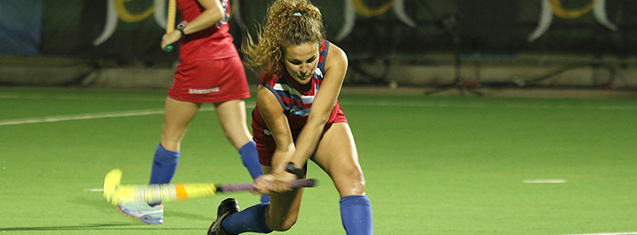
Tanya Britz.
Photo: Johan Roux
It seems just like yesterday that the Kovsie community was boasting about how the Kovsie Hockey ladies team had excelled during the Varsity Sports Hockey tournament. From that team, three players have been selected to play for the national Proteas Hockey team. Nicole Walraven, Tanya Britz, and Linè Malan will be a part of the team representing South Africa in this year’s third edition Hockey World League Semi-final in Spain.
The Hockey World League is an international field hockey competion organised by the International Hockey Federation (FIH), and is held over a period of two years. The semi-finals of the competition are going to serve as a qualifier for the 2016 Summer Olympics in Rio, Brazil.
All three ladies were also part of the team capped for the Proteas in a two-week long camp and test matches earlier this year. Britz and Walraven are no strangers to the process Although Malan is the newest addition, she did get a taste of playing international Hockey at the beginning of the year in Ireland. What makes this journey interesting and special is that they are all embarking on their international careers at such a prestigious level.
The league kicks off on 10 June 2015 at 13:00. Supporters can catch all the action of both the men’s and women’s games on Super Sport, channel 207. We will be backing our ladies as they make history.